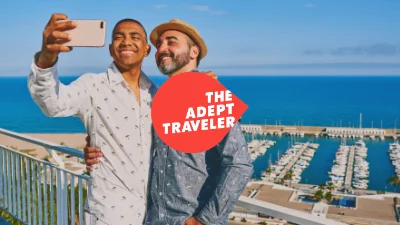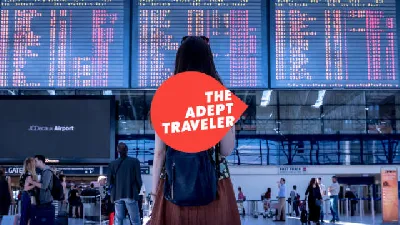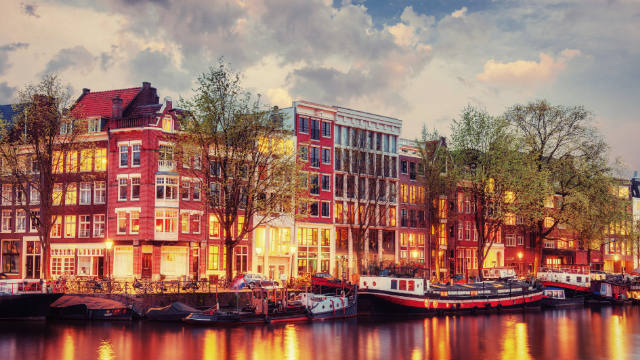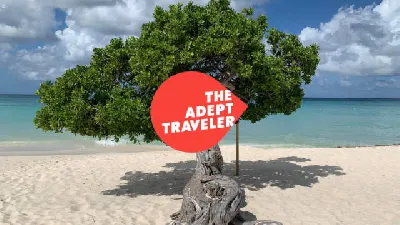LGBTQ Travel
When we dive into the world of travel, one can’t help but get swept away by the myriad experiences awaiting us. Yet, not all forms of travel are created equal. LGBTQ travel — oh, that's a different adventure entirely. It’s more than just selecting destinations; it's about navigating the tapestry of culture, acceptance, and community support.
Consider this: when embarking on LGBTQ travel, it’s not just about the places marked as "friendly". There’s a whole web of considerations. Is the location truly safe? Does it offer the genuine warmth of acceptance? Come to think of it, it's these very questions that define an entire travel style. And when you’re packing your bags with these thoughts swirling in your mind, travel becomes a richer tapestry, don’t you think?
The Essence of LGBTQ Travel
Now, when we talk about LGBTQ travel, we're inherently unraveling a narrative steeped in resilience and adaptability. There’s a history here. Not too long ago, finding a safe space was a rarity, and you had to rely on the whispers of those who'd traveled the path before. Ah, the days of seeking coded signals! Thankfully, times have changed — or have they? Well, yes and no. It’s like—amazing progress has been made, yet challenges somehow still find their way into the mix.
In many parts of the world, there’s a growing embrace of the LGBTQ community — think rainbow flags, inclusive events, and safe zones like the vibrant zones of San Francisco, Berlin, or Toronto. But herein lies the paradox. While some destinations draw us in with promises of being LGBTQ-friendly, others still echo with the past's exclusionary undertones. It's about striking that delicate balance between exploration and safety.
Destinations That Speak Volumes
When contemplating LGBTQ travel destinations, certain names inevitably pop up. True, there are the tried and tested ones, but why not wander off the beaten path? Sure, cities like Amsterdam, known for its progressive attitudes, offer a welcoming embrace. But there's also something to be said for those unexpected jewels that offer authenticity without the fanfare. Take Argentina: Buenos Aires pulses with an eclectic mix of tradition and modernity that’s refreshingly open-minded.
Oh, and there’s Reykjavik! A city of contrasts — icy landscapes and warm hearts. It may surprise you how this small capital city consistently ranks as one of the most LGBTQ-friendly places in the world. It’s an odd reflection of how travel often shatters our expectations, isn’t it? The unpredictability of it all can be thrilling!
Navigating the Subtleties
So, what guides one in LGBTQ travel? Trust me, it’s not just about the destination. It's about understanding the subtleties, the undercurrents. While technology has connected us in unprecedented ways, giving us insights into areas previously unknown, there’s still the question of authenticity. Imagine sifting through countless reviews or experiences; it makes you ponder, doesn’t it? How reliable can this modern-day word-of-mouth truly be?
Social platforms offer a myriad of LGBTQ travel guides and forums, but they're not without their quirks. Some might lead you right into the heart of an inclusive event, while others... well, let's just say they might gloss over the nuanced challenges you might encounter. There's a lesson here: trust your instincts as much as your sources.
The Cozy Corners of Community
Wait a minute! Before diving deeper, have you ever considered how LGBTQ travel opens up to community-building? It's not just about going to places where one feels safe. It's about weaving connections, understanding narratives from different cultures, and coming together in vibrant, collective experiences. The joy of finding yourself surrounded by like-minded individuals or those who appreciate diversity — now that’s a real travel perk.
Picture this: stumbling upon a local LGBTQ event in a foreign city. There’s something magical about such serendipity. An accidental wander into a festival soaked in colors and diversity. These aren’t just events; they are havens. Places where every traveler, every voyager, feels part of something larger — a worldwide family.
Reflecting on the Journey
In this whirlwind stream of thoughts — mid-sentence ruminations, if you will — there's an overarching realization. LGBTQ travel isn’t just about embarking on a journey. It's about reflection and introspection. The destinations can offer lessons in courage and compassion, showing us how far acceptance has come and how far it has yet to go.
Isn’t it fascinating how this journey makes you introspect, often challenging your very notions of identity and acceptance? Travel, in this sense, becomes more than an exploration of the external world. The deeper you dive, the more you realize it's a discovery of self and societal narratives. A travel style that beckons inner reflection as much as outer exploration.
And as I write this, fingers effortlessly racing across keys, it strikes me. The act of sharing such reflections can be cathartic, a reminder of the power of travel to transcend borders — both literal and metaphorical. Crafting this narrative, albeit in its stream-of-consciousness messiness, highlights the beauty of diverse experiences and the undeniable potential of travel to foster understanding.
Doughnt get me wrong, theres no all-encompassing view on LGBTQ travel. Every person, every adventure - unique in its essence. Yet, each intrepid traveler contributes to a collective tapestry, their stories interwoven into narratives that redefine not just travel, but the world around us.
Yosemite Active-ism Hike Sells Out for May 2026

Tanzania Level 3 Advisory Raises Safari Risk

Safety Tips for LGBTQ+ Travelers: How to Stay Safe and Have Fun

Top LGBTQ+ Friendly Destinations Around the World

Alternatives to Traveling Through Florida for LGBTQ+ Travelers

Explore & Celebrate: Top 10 LGBTQ-Friendly European Destinations

Is Aruba Safe?

